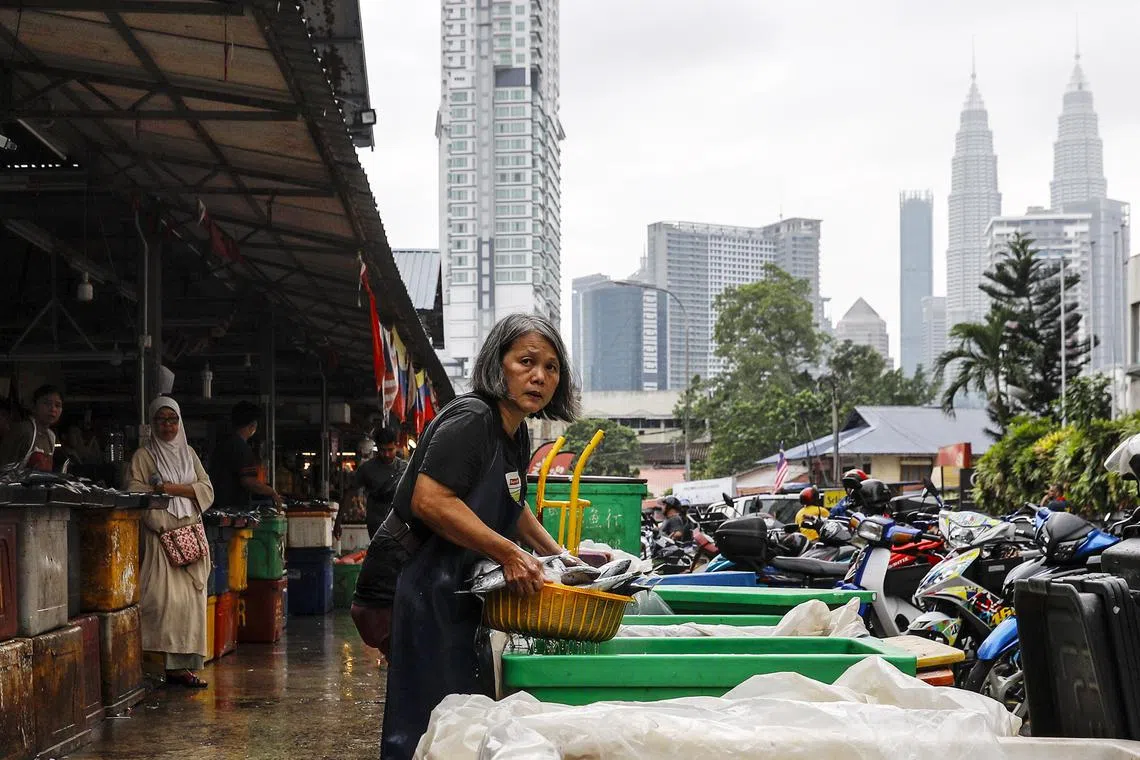Malaysia to closely inspect high-risk Japan food imports; calm urged over Fukushima release
Sign up now: Get insights on the biggest stories in Malaysia

Malaysia’s deputy Agriculture and Food Security Minister Chan Foong Hin said there was currently no live marine fish imported from Japan to Malaysia.
PHOTO: EPA-EFE
Follow topic:
PETALING JAYA - The Malaysian public has been urged to remain calm over Japan’s plans to begin releasing treated water from Fukushima
Malaysia’s deputy Agriculture and Food Security Minister Chan Foong Hin said there was currently no live marine fish imported from Japan to Malaysia, according to the Fisheries Department.
“For any non-live fishery products from Japan, the Ministry is currently working closely with the Health Ministry and other relevant authorities such as Quarantine and Inspection Services Malaysia and the Malaysia Fisheries Development Authority to monitor food safety issues, including checks on health certifications and radiation during post import,” he said in a statement on Wednesday.
Malaysia’s health ministry will be on alert when imposing inspections on high-risk food products imported from Japan.
The inspections, which would be for radioactive content, would be done at the international entry points into the country, said Health director-general Dr Radzi Abu Hassan on Wednesday.
He added that the Health Ministry is aware of consumers’ concerns on this issue, and said that the health authorities are constantly conducting surveillance at the international entry points and local markets to ensure food safety.
Dr Radzi also said that the Health Ministry, through the Food Safety and Quality Division, had been monitoring food products imported from Japan from May 2011 until April 2012 after the Fukushima Daiichi nuclear plant incident that followed the Tohoku earthquake on March 11, 2011.
“A special monitoring programme was also carried out in 2019, where a total of 102 samples were analysed, and all samples were found not to exceed the prescribed rate,” he said.
Based on Health Ministry data, from 2022 to June 2023, fish and fish-based products are among the highest imported products from Japan, followed by fruit, vegetable products and processed food and beverages with a total value of over RM880 million (S$257 million).
On Tuesday, Japan Prime Minister Fumio Kishida said the country will start releasing more than one million metric tonnes of treated water from the wrecked Fukushima Daiichi nuclear power plant.
Japan has said that the release of treated water from the plant operated by the Tokyo Electric Power Company (Tepco) is “consistent with international safety standards”.
An International Atomic Energy Agency report on July 4 concluded that the planned release of treated water into the sea from the Fukushima Daiichi nuclear power plant was “consistent with international safety standards”, and added that the impact of the release on people and the environment would be “negligible”.
Water contaminated by radiation at Fukushima Daiichi was cleaned by the multi-nuclide removal Advanced Liquid Processing System to remove as many radioactive elements as possible.
However, tritium, a radioactive form of hydrogen, could not be removed, resulting in Tepco having to store the treated water in tanks at the plant, which had nearly reached full capacity.
Japan decided in April 2021 to release the water into the sea by diluting the concentration of tritium in the treated water, a level that met the national standard, before releasing that water 1km offshore from the nuclear power plant, into the North Pacific Ocean. THE STAR/ASIA NEWS NETWORK

